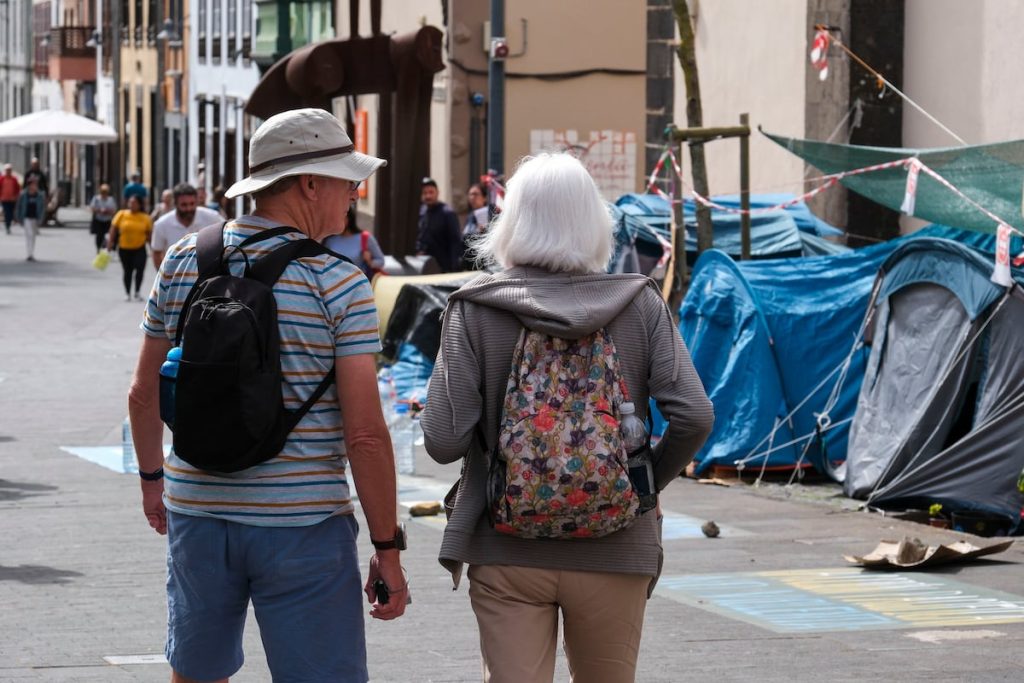The Parliament of the Canary Islands rejected a non-binding proposal presented by the PSOE for the implementation of a tax on tourist overnight stays, among other measures aimed at controlling tourist growth. This rejection comes four days after about 60,000 people, according to the Government Delegation, demonstrated in the eight islands calling for its implementation as part of a change in the tourist model. The parties supporting the Government of the Canary Islands (Coalición Canaria, Partido Popular, Agrupación Socialista Gomera, and Agrupación Herreña Independiente), as well as Vox, voted against and accused the proponents of being opportunists. CC representative, José Miguel Barragán, urged the opposition not to make “announcement politics”. The PSOE had defended the opportunity to debate the implementation of the tax at this time because tourism figures have already recovered and because, after the massive demonstrations on April 20, it is good to “send a message to the citizens” that the Parliament is close to their concerns.
On Monday, the President of the Canary Islands, Fernando Clavijo, acknowledged the “weaknesses” of the archipelago’s economic system and stated that “things have to change” and that the tourist model must be reviewed and “reset”. The president of the Canary Islands stated that in this term, there are specific measures “to correct the issue of housing or vacation rentals” and there are “more than 70 university experts collaborating in 14 working groups to talk about sustainable economic development and the revision of the tourist model”. “Things have to change, things have to be reviewed, and I believe we are all on that path.” After the rejection by the Parliament, the fifteen groups that called for the demonstrations last weekend demanded in a press release the implementation of a “total” hotel and vacation rental moratorium in the archipelago.
The Parliament of the Canary Islands did approve a non-binding proposal (PNL) from the NC-BC Group, with the vote against from the Vox group, in order to halt any authorization related to permits for the exploration and prospection of rare earths on the island of Fuerteventura, as well as to deny any requests in this regard. The proposal also suggests that in the face of future requests, prior information should be provided to the affected local and insular institutions and that the environmental impact of any mining activity on the surroundings, flora and fauna, as well as the health of the people in the directly affected areas, should be analyzed, along with the surrounding territories and marine ecosystems.















